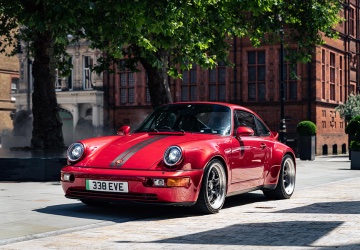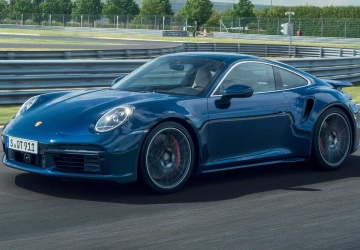Porsche 911: Is it worth the hype?
The Porsche 911 is the ideal sports car. Rear-wheel drive (later switched to 4S and Turbo variants), a small and lightweight body, a powerful but well-sized rear engine and four seats have all contributed to the success of one of Germany's foremost exporters since 1963 contribute. Its popularity is undeniable, having sold over a million copies.

It has become an example of what differentiates a sports car from a supercar today. Whether it's the entry-level Carrera or the highly sought-after flagship GT2 RS, the Porsche 911 is a reliable everyday car. The 911 is the ideal "utility supercar" - functional performance that few other automakers offer. As you move up the ranks, the fenders get wider, power increases, creature comforts are sacrificed (especially on the sturdy RS models), and the rear seats are eliminated.
Regardless of age or shape, the 911 is a coveted car. For example, the prices of the original air-cooled 911s of the 930, 964, 993 generations continued to rise.
Steering is excellent, very direct, light and responsive without excessive twitching. The engine is also amazing. Porsche has been heavily criticized for using only turbocharged engines in its latest 911 models (except the GT3), but perhaps people would have reacted differently if they had used previous iterations. The 3.0-liter twin-turbocharged flat-6 in the Carrera S produces 443 horsepower and 390 pound-feet of torque and 64 horsepower and 59 pound-feet more than the standard Carrera. There's plenty of power in every gear, and the sports exhaust is louder and sounds great up to 7,500 rpm. According to Porsche, it sprints from 0 to 100 km/h in just 3.5 seconds with virtually no turbo lag.

Even more impressive is how well the 911 performs as a conventional car. The 992 generations are by far the longest and most extensive, but they're still easy to place and navigate. Equipped with 18-way adjustable sports seats, it is also very comfortable, and despite the offset wheels, it is not unstable over significant bumps or rough terrain.
Building a car with quick steering is easy these days. Any established automaker can add a big, powerful electric motor to the steering for quicker response times, but they don't always deliver the precision and steering experience. Porsche has always had great steering feel, even if you don't expect a rear-engined car to have enough weight on the front axle to get anything. With the 911, even center dead center is just as good.
Well, if you can't tell already, we're biased; we love this bad boy.











